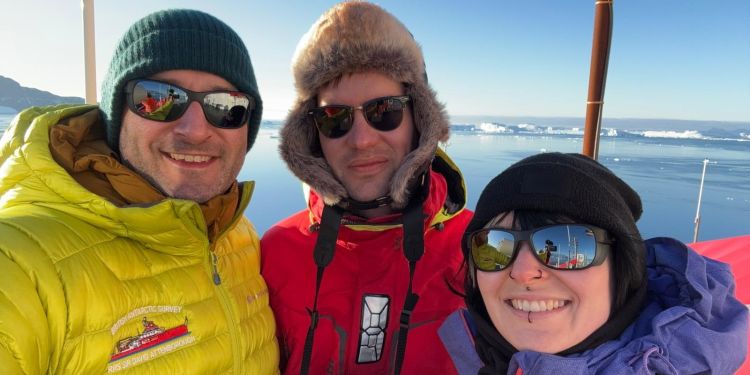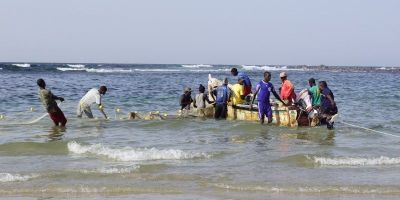Cold, unbalanced and feeling seasick – all in the name of science

Three researchers from the University of Leeds are embarking on a two-month expedition to the Antarctic to investigate one of the most important questions in climate science.
Dr Will Homoky, Dr Alastair Lough and Chiara Krewer, all from the School of Earth and Environment, will be looking at the role that the cold polar seas play in removing carbon dioxide from the atmosphere.
The burning of oil and coal and some industrial processes results in carbon dioxide being emitted into the atmosphere and that is contributing to climate change.
Oceans help moderate the impacts of carbon dioxide
The world’s oceans absorb about a third of the emitted carbon dioxide, moderating its impact on the climate. The very cold seas that circulate in the polar regions are disproportionately effective in removing carbon dioxide from the atmosphere.
Dr Homoky, an oceanographer, explained: “As global temperatures increase, we need to know how all sorts of processes in the Southern Ocean around Antarctica help to absorb and transform carbon dioxide from our atmosphere.
“The work we will be doing in the Weddell Sea with other scientists on the expedition will be integral to predicting the future course of climate change.”
The scientists will be working in very cold conditions and must cross extremely rough waters of the Southern Ocean to reach their study area.
Sailing on the Southern Ocean
Dr Homoky admits to feeling seasick at times but stoically sees it as an occupational hazard for scientists wanting to investigate the marine environment.
“The Southern Ocean can be inhospitable, and you must be prepared for that. On a practical level, it means working around problems: equipment could freeze up or be thrown about the vessel and the seas might be so rough at times that we cannot work outside. We try to plan our work around all these eventualities.
“If any of us are feeling very unwell, we’ll have to rest. After all, we’re a team and want to look after each other and keep morale high. Thankfully, our bodies will adapt after a period at sea, and my tolerance of very rough sea begins to improve.”
Video transcript: Dr Will Homoky onboard the RRS Sir David Attenborough
The three Leeds scientists flew out to Punta Arenas in Chile to join the RRS Sir David Attenborough, one of the most advanced research ships in the world for the journey to Antarctica, operated by the British Antarctic Survey.
For Chiara Krewer, a doctoral researcher from Leeds, the challenge will be to maintain strict scientific protocols to reduce the risk of samples becoming contaminated in a ship environment, that also might be in the eye of a storm.
She said: “For me, the key aim is to keep everything as clean as it needs to be for filtering our water samples once they reach the ship. We will be using a specialist lab on board the ship with strict rules that need to be followed to protect samples from contamination.”
Ice and water samples
During the expedition, the Leeds scientists will be collecting samples near the East Antarctic Peninsula and hope to get onto the sea ice to drill for samples of ice and collect the hidden waters beneath it for unique chemical analysis.
Dr Alastair Lough, from the School of Geography, will be taking samples from the sea ice, which floats on the surface of the ocean.
He said: “Working on the sea ice will be a whole new challenge for me, in conditions I’ve never experienced before, and we’ll be trying to collect water samples using new techniques.”
On board will be 32 other scientists from around the UK, all working on the project known as PICCOLO which is funded by the UK Natural Environment Research Council. PICCOLO is co-led by Professor Karen Heywood, from the University of East Anglia, and Professor Tom Bell from Plymouth Marine Laboratory.
You can read more about RRS Sir David Attenborough, see its location and the live view from a camera on the ship's bridge, all found on the British Antarctic Survey website or follow the journey on social media by searching for #AntarcticPICCOLO.
Further information
Please contact University of Leeds press officer Ben Johnson at b.johnson2@leeds.ac.uk.




